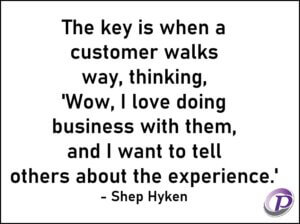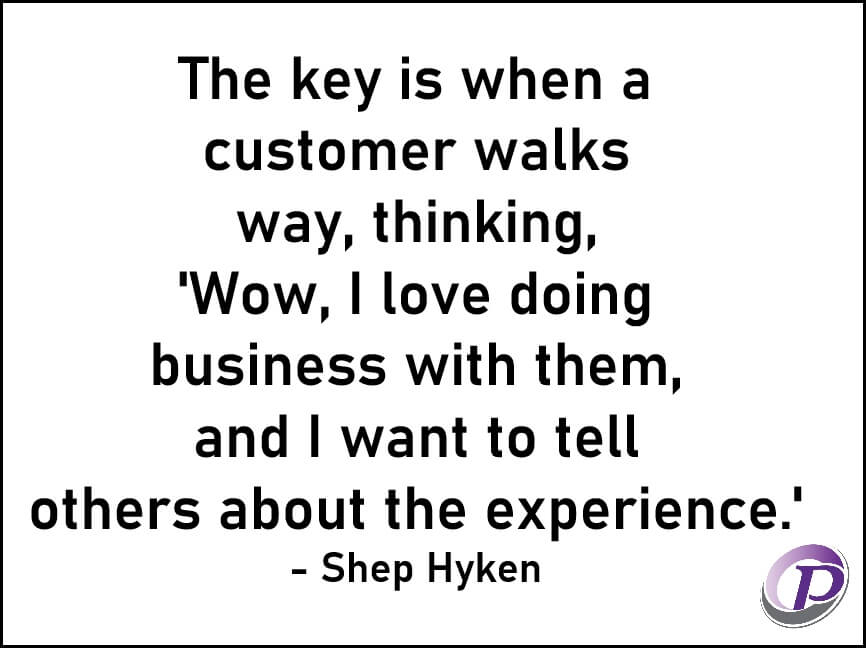
2 min readPositive Client Relationships From The Start
by Guy Gage | February 20, 2022 | Business, Client Experience, Leadership, Performance

Clients New To You
Last week’s Monday Message was about you assuming some of the responsibility for your clients behaving badly, like delaying getting their information to you on time or providing incomplete or inaccurate information. It resonated with many of the readers as a reminder that sometimes we forget we have more influence than we imagine.
For me, last week was another full round of coaching calls with firms across the nation. In them, I heard a common theme: getting clients going in a good direction, especially when they are new to you. Any time you gain new clients or are reassigned firm clients, there is an opportunity to create healthy client relationships from the start.
Develop Cooperative Clients
One of the best ways to develop cooperative clients is to begin with inquiry. By this, I mean finding out what they want, need and expect. Lest you forget, every client has expectations about everything, whether they tell you or not. Obviously, it helps if you ask, but sometimes they may not even know what their expectations are until you don’t meet them. Then they are irritated or disappointed and you were totally unaware.
So how do you create positive relationships from the start?
Method One
Several of the firms I work with are using the research call approach that Gale Crosley refined and popularized in the accounting world. It is a technique that professionals use to gain exposure, make introductions and deepen their understanding of a market segment, all to develop a professional presence.
Since my clients were familiar with the model, I repurposed it by coaching them to conduct “research calls” with new (or newly assigned) clients. Instead of a market presence, the goal is to establish “client presence” by inquiring about what is important to them and what they like about their experience with accountants. You can also inquire about what they don’t like—things that irritate or disappoint them. By conducting this inquiry, you demonstrate your desire to serve them to their satisfaction.
“What do you value most about working with an accountant?”
“What have accountants done or not done that irritates or disappoints you?”
“What would an ideal client-accountant work relationship look like?”
“As we begin our professional relationship, what would be important to establish from the start?”
Method Two
Knowing this information from the beginning is so important in creating a positive relationship with your clients. In fact, it is one of four principles that we teach in the Partner-Pipeline Program® to create a Distinctive Client Experience—Meet Expectations. By knowing your client’s expectations, you can discuss and negotiate them so that each of you knows what to expect from the other. You would be surprised how helpful this is in enlisting their cooperation.
Using inquiry with clients proves to them that you are interested in serving them well. You will have an idea of what’s important and what to avoid. In the end, you will establish positive client relationships from the start. And everyone benefits from that.
Read Related Blogs:
Strategy Isn’t a Luxury – It’s a Lifeline for CPA Firms
As year-end approaches, we often find ourselves in survival mode - juggling deadlines, client demands, and the whirlwind of the holiday season. It’s tempting to shelve strategic planning until “things calm down.” But here’s the truth: strategy isn’t a luxury reserved...
What Reality are you Naming?
Leaders establish reality by the way they talk about something. If a firm leader talks about a situation as unimportant, their followers will not take it seriously. If a leader refers to a decision as ill-advised, others will also resent it. If a leader reinforces a...
Igniting a Spark in Your Team Through Gratitude
As CPA’s, our days are often consumed by numbers and deadlines. Adding a bit of intentionality is all it takes to ignite a spark in your team that can transform your practice into a vibrant, motivated workplace. Gratitude is one catalyst for this energy. By weaving...



